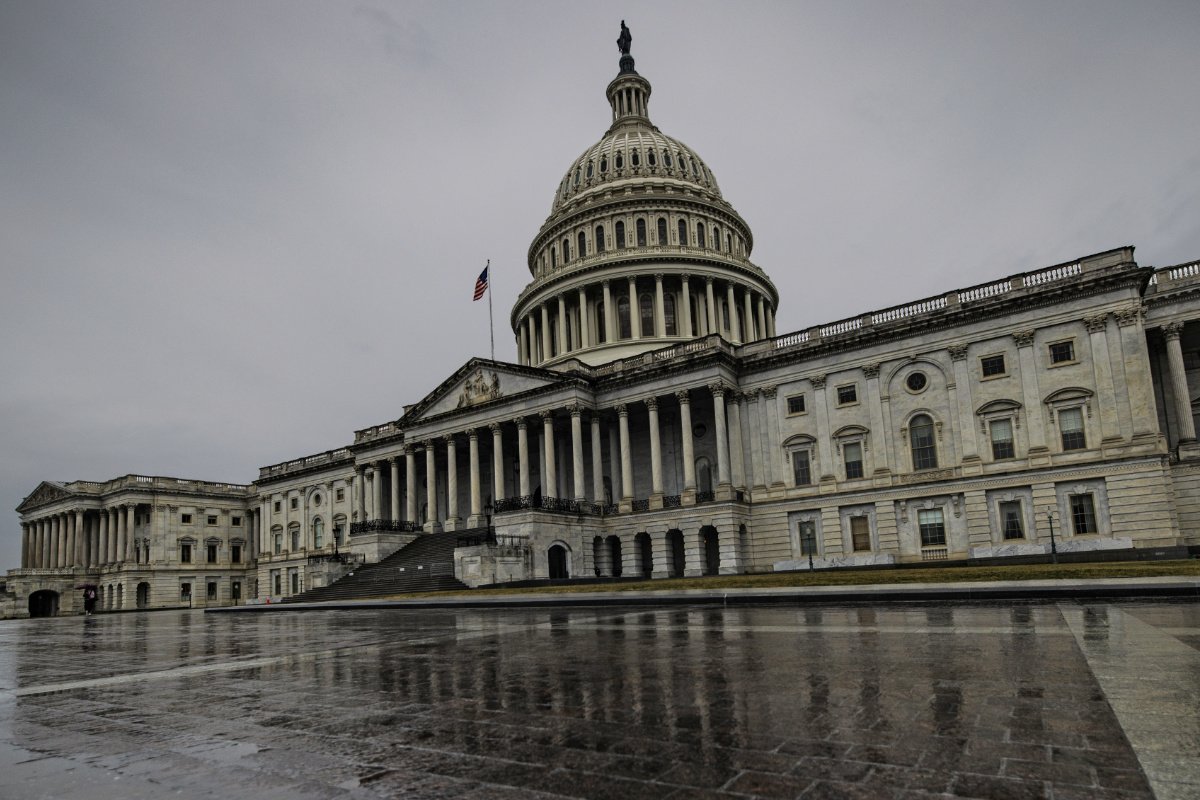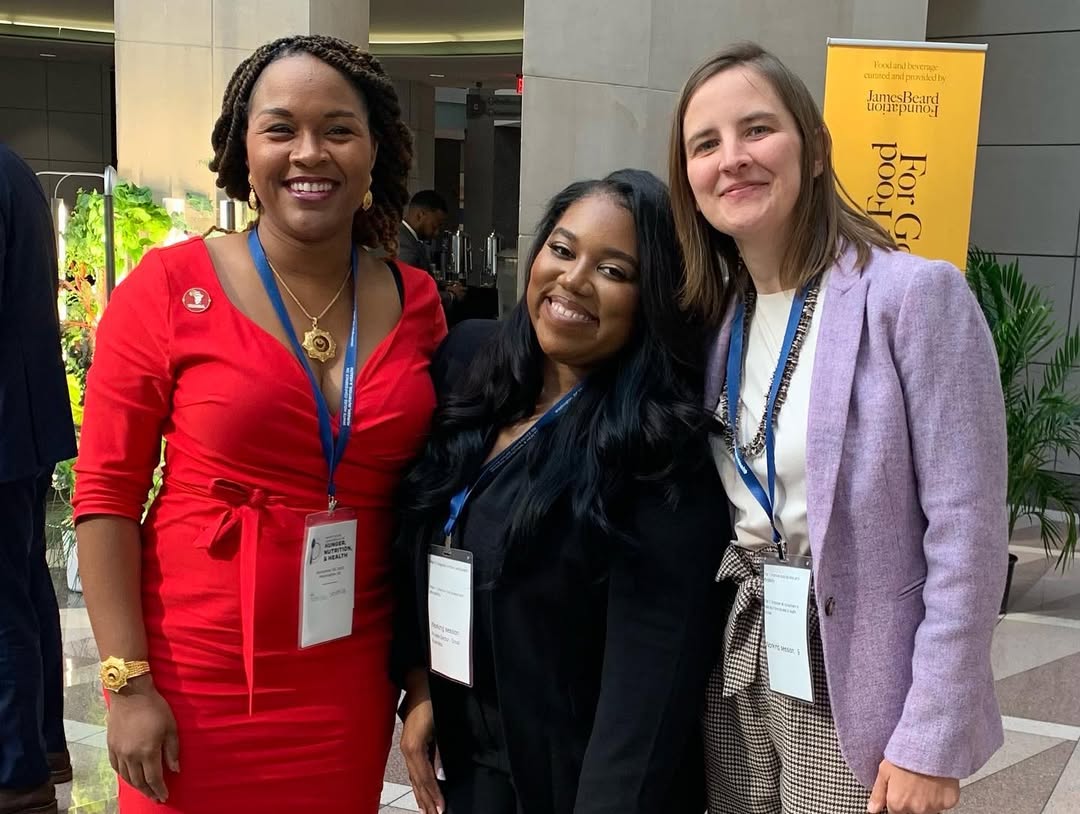Industry groups spend hundreds of millions to cultivate political favor, excluding most Americans from critical decisions about food and climate.

Industry groups spend hundreds of millions to cultivate political favor, excluding most Americans from critical decisions about food and climate.
June 17, 2025

The U.S. Capitol, February 2024, Washington, D.C. (Photo credit: Samuel Corum, Getty Images)
A version of this article originally appeared in The Deep Dish, our members-only newsletter. Become a member today and get the next issue directly in your inbox.
Expand your understanding of food systems as a Civil Eats member. Enjoy unlimited access to our groundbreaking reporting, engage with experts, and connect with a community of changemakers.
Already a member?
Login
In May 2024, the Union of Concerned Scientists (UCS) issued a report analyzing the lobbying efforts of agribusiness ahead of anticipated debate over a farm bill. That farm bill remains in limbo, but lobbyists have been active on Capitol Hill in recent weeks, as members of Congress debate the food and agriculture policy shifts contained in Trump’s “big, beautiful” budget reconciliation bill.
Money and lobbyists—a term coined for people who once waited in lobbies to speak to members of Congress—are intertwined in U.S. politics. Lobbyists act as influencers on behalf of special-interest groups. They help finance political campaigns and attend fundraisers for a chance to have their positions heard by legislators over breakfast, lunch, or drinks. The more money a lobbyist spends, the more face time he or she tends to get with a lawmaker (so long as the Supreme Court continues to protect money as free speech).
That leaves many Americans with little say in political decision-making and, according to Pew Research, “widespread dissatisfaction with the role of money in American politics.”
“This system also creates challenges for underserved producers, beginning farmers, and farmers of color in particular to enter the profession and start small farms, which are some of the most diversified operations.”
None of this is news to people who follow policy. However, what surprised UCS Food and Environment Program Scientist Omanjana Goswami, who co-authored the 2024 study with Karen Perry Stillerman, deputy director of the program, was the rise in these lobbying efforts by agribusiness.
Though Big Ag’s activities are often overshadowed by the massive influence of the oil and gas industry, the UCS analysis showed that these two entities are interconnected. The hundreds of millions of dollars they collectively spend on lobbying efforts create a democratic inequality wherein most people living in the United States have little say over the laws that dictate how we grow our food and what impact that has on the climate.
Industrial agriculture creates water scarcity, chemical pollution, soil degradation, and biodiversity loss, and it is a major driver of climate change through greenhouse gas emissions. The UCS report found that the “pay-to-play” lobbying system minimizes, in particular, the voices and the needs of small and midsize farms, diverse farmers, food workers, and farmworkers and prioritizes corporations, all while adding to the climate crisis.
Goswami recently spoke to Civil Eats to help explain the connection of agribusiness with oil and gas and what needs to be done to change a system that perpetuates climate inequality.
What is the relationship between agribusiness and the fossil fuel industry, and how does it impact climate change?
If you look at who the major lobbyists are, they represent big [agricultural] manufacturers that make fertilizers, chemicals, herbicides, pesticides, and insecticides, which need inputs of energy, in particular nitrogen fertilizer. There is this circularity and kind of quid pro quo between agribusiness and the oil and gas industry.
Our highly energy-intensive, monocultural farming system has a very high negative impact when it comes to climate. You’re constantly adding chemical inputs to an already stressed system, which then makes your energy inputs go up—and your negative climate impacts go up at the same time.
If food policy prioritizes corporate needs, how does that impact the well-being of people, the environment, and the climate? What sorts of climate inequalities does this system create or contribute to?
This system—how it’s set up and how the current administration is also moving it—is unfortunately where profits take precedence over people and the environment. There is something called a tipping point in climate science, and we’re pushing closer and closer to that tipping point, when perhaps we will not be able to bounce back, as nature has the capacity to do right now.
This creates inequities in an already inequitable system, where the burden falls on certain disadvantaged communities, certain disadvantaged races, people who already have difficulty, either in the place where they live—in terms of quality of air and water and resources that they have access to—and then just overall, making it inequitable for them to be able to breathe and live free.
This system also creates challenges for underserved producers, beginning farmers, and farmers of color in particular to enter the profession and start small farms, which also are some of the most diversified operations. They are being squeezed out of the system, because farms are getting larger and larger. That is a trend that you can observe throughout the food and farming system: The first people to leave farming are farmers of color—disadvantaged, underserved producers.
“[Our food] system doesn’t give us a choice on what food we eat, how it’s grown, or what we buy at the grocery store. The system is set up for big agribusiness to keep profiteering.”
A significant section of the report explores the lobbying efforts of the Farm Bureau, which spent nearly $16 million on farm bill lobbying alone between 2019 and 2023. What did you conclude about how it operates?
Most people think of the Farm Bureau as a leading state-based and national organization made up of farmers and advocates for farmers. But if you dig deeper, the Farm Bureau is really one of the worst actors when it comes to agribusiness and lobbying. It is actually one of the biggest climate deniers when it comes to climate- and equity-based issues.
What needs to change for lawmakers to focus on improving climate and equity? And what motivates you to continue advocating for this cause?
People need to realize how little choice they have in the system. [Our food] system doesn’t give us a choice on what food we eat, how it’s grown, or what we buy at the grocery store. The system is set up for big agribusiness to keep profiteering.
The biggest movement we need right now is for people to rise up and respond to this moment and collectively call for change in the system, to go to their elected officials in Congress and call for more transparency. Calling for more transparency, calling for more data, helps groups like us, groups who keep an eye on things like this.
Secondly, there are several marker bills in Congress that ask for equitable measures within larger pieces of legislation [such as the farm bill]. So basically, call on members of Congress and demand that equity-focused, climate-focused measures [continue to] be included.
As saddening and as discouraging as the environment can be right now, I think what keeps me motivated is knowing that I am definitely not in this fight alone.
This interview was lightly edited for length and clarity.

July 30, 2025
From Oklahoma to D.C., a food activist works to ensure that communities can protect their food systems and their future.
Leave a Comment